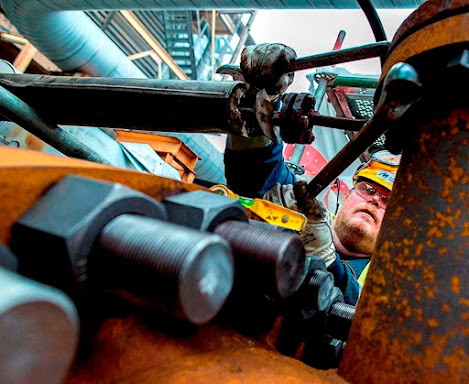Importance of Petrochemical Maintenance in the Global Economy
The petrochemical industry is a large sector of the global economy. The diversified sector produces a wide range of products, from chemicals to plastics. Demand for these products is growing substantially, and petrochemical companies benefit from low oil prices and healthy operating rates. However, they have not been able to pass on the lower costs of feedstocks to their customers. Therefore, minimizing the impact of these factors is crucial for the sector's growth.
While
COVID-19 has forced petrochemical executives to rethink the industry's future,
several structural changes have already occurred. First, declining demand,
followed by a surplus of raw materials, has led to a deteriorating value pool.
Second, the shift from fossil fuels to renewable energy and circular economy
has led to a significant disruption in the industry. To combat these changes,
chemical industry executives must update their management plans. In addition,
they should focus on regionalized supply chains and a greater understanding of
possible scenarios.
Third,
the petrochemical industry has benefited from the economic recovery of emerging
economies. Using low-cost gas as feedstock has been a significant benefit for
petrochemical companies. This new supply is much cheaper than oil, putting
petrochemical companies in a competitive position. This advantage is especially
beneficial for the C1 and C2 chains. The cost-effectiveness of gas feedstocks
has increased demand for the petrochemical industry, which is also a crucial
element of the C1 derivatives chain.
Refining
fractions from crude oil produce petrochemical maintenance to create
higher-quality molecules. The petrochemical industry also involves supporting
operations that are not directly related to petrochemicals production. These
include energy generation, wastewater treatment, sulfur recovery, additive
production, and waste gas treatment. The end-products are used in plastics,
synthetic fibers, and paints. Another important application for petrochemicals
is in the motor fuel blending industry.
Currently,
the petrochemical industry is inextricably linked to the circular economy
debate. It is considered a once-through value chain, with 80 percent of its
building blocks used for plastics. As a result, it has been a focus of
increasing attention in recent years on the need for a more circular approach
to waste management. To this end, many potential solutions are being tested.
Some of these include renewable materials and bio-based materials.
Increasing
investment in petrochemical maintenance is critical to their productivity and clean operation. This investment
will continue to grow over the next few years as petrochemical companies
increasingly invest in new technology and infrastructure. This will allow them
to achieve greater productivity while meeting environmental standards and
keeping their costs down. The petrochemical industry is crucial to the economy
of a state. But it is also essential to consider the needs of a community
before implementing such policies.




Comments
Post a Comment